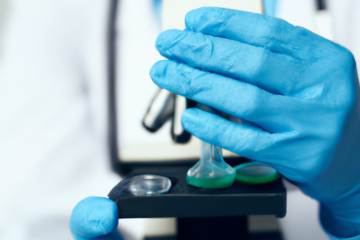Fertility is a complex and multifaceted aspect of reproductive health, influenced by various factors such as genetics, lifestyle, and overall well-being. In recent years, researchers have turned their attention to the intriguing connection between digestion and fertility. This article delves into the intricate relationship between the digestive system and reproductive health, highlighting how the gut plays a significant role in influencing fertility outcomes.
- The Gut Microbiome’s Role:
The gut microbiome, a vast community of trillions of microorganisms residing in the digestive tract, has emerged as a key player in overall health, including fertility. Studies suggest that a balanced and diverse gut microbiome may positively impact reproductive health by influencing hormone regulation, nutrient absorption, and immune system function.
- Nutrient Absorption and Hormone Regulation:
Proper digestion is essential for the absorption of nutrients critical for reproductive health. Nutrients such as folate, zinc, and omega-3 fatty acids play key roles in fertility, affecting egg and sperm quality. Additionally, the gut is involved in hormone metabolism, and an imbalance in hormones such as insulin and leptin can impact reproductive function.
- Inflammation and Fertility:
Chronic inflammation in the gut can have a ripple effect on the entire body, including the reproductive system. Inflammatory markers can disrupt hormonal balance, compromise the integrity of the reproductive organs, and contribute to conditions such as polycystic ovary syndrome (PCOS) or endometriosis, which may affect fertility.
- Gut-Brain Axis and Stress:
The gut and the brain are interconnected through the gut-brain axis, and stress can significantly impact both digestive and reproductive health. Chronic stress can lead to gastrointestinal issues and disrupt hormonal balance, potentially affecting fertility. Practices that support a healthy gut, such as mindful eating and stress management, may positively influence fertility outcomes.
- Impact of Diet and Lifestyle:
Diet and lifestyle choices play a pivotal role in both digestion and fertility. A diet rich in whole foods, fiber, and probiotics supports a healthy gut environment. Conversely, excessive consumption of processed foods, high sugar intake, and other unhealthy habits can contribute to gut dysbiosis and negatively impact reproductive health.
- Preconception Care and Digestive Health:
Recognizing the interplay between digestion and fertility, preconception care now includes a focus on optimizing digestive health. This may involve dietary adjustments, supplementation, and lifestyle modifications to create an environment conducive to successful conception and a healthy pregnancy.
Conclusion:
Understanding the link between digestion and fertility provides valuable insights for individuals and couples navigating the journey towards parenthood. By adopting holistic approaches that prioritize digestive health through proper nutrition, stress management, and lifestyle choices, individuals can potentially enhance their reproductive well-being. As research continues to unravel the complexities of the gut-fertility connection, incorporating these insights into fertility care may open new avenues for improving outcomes and supporting healthy pregnancies.




